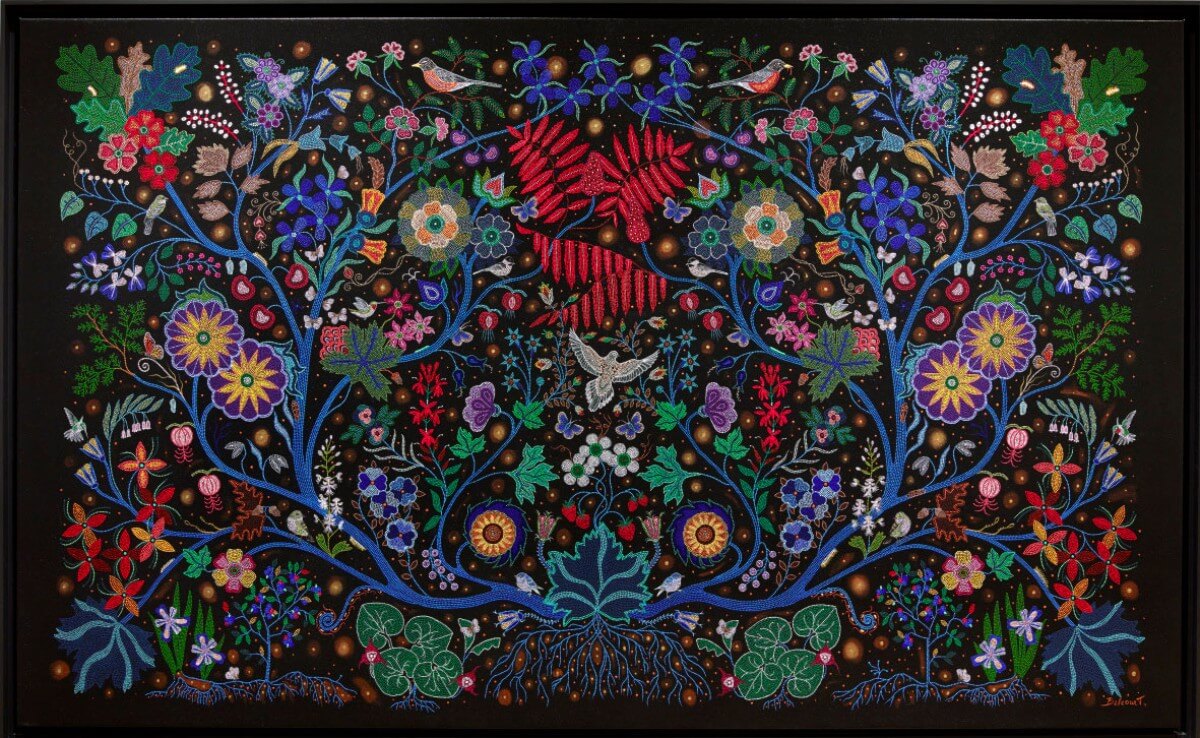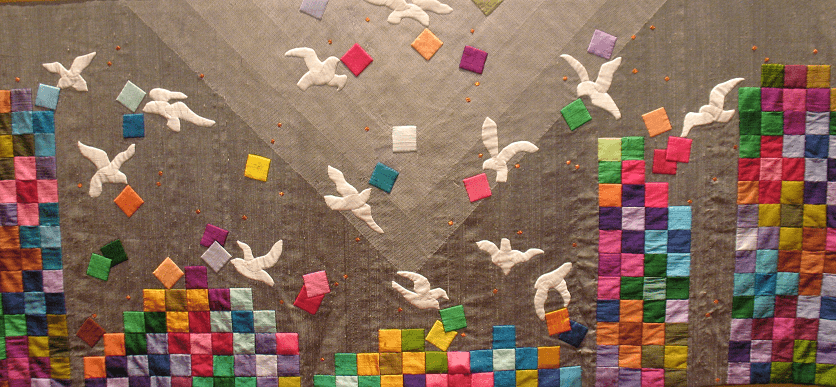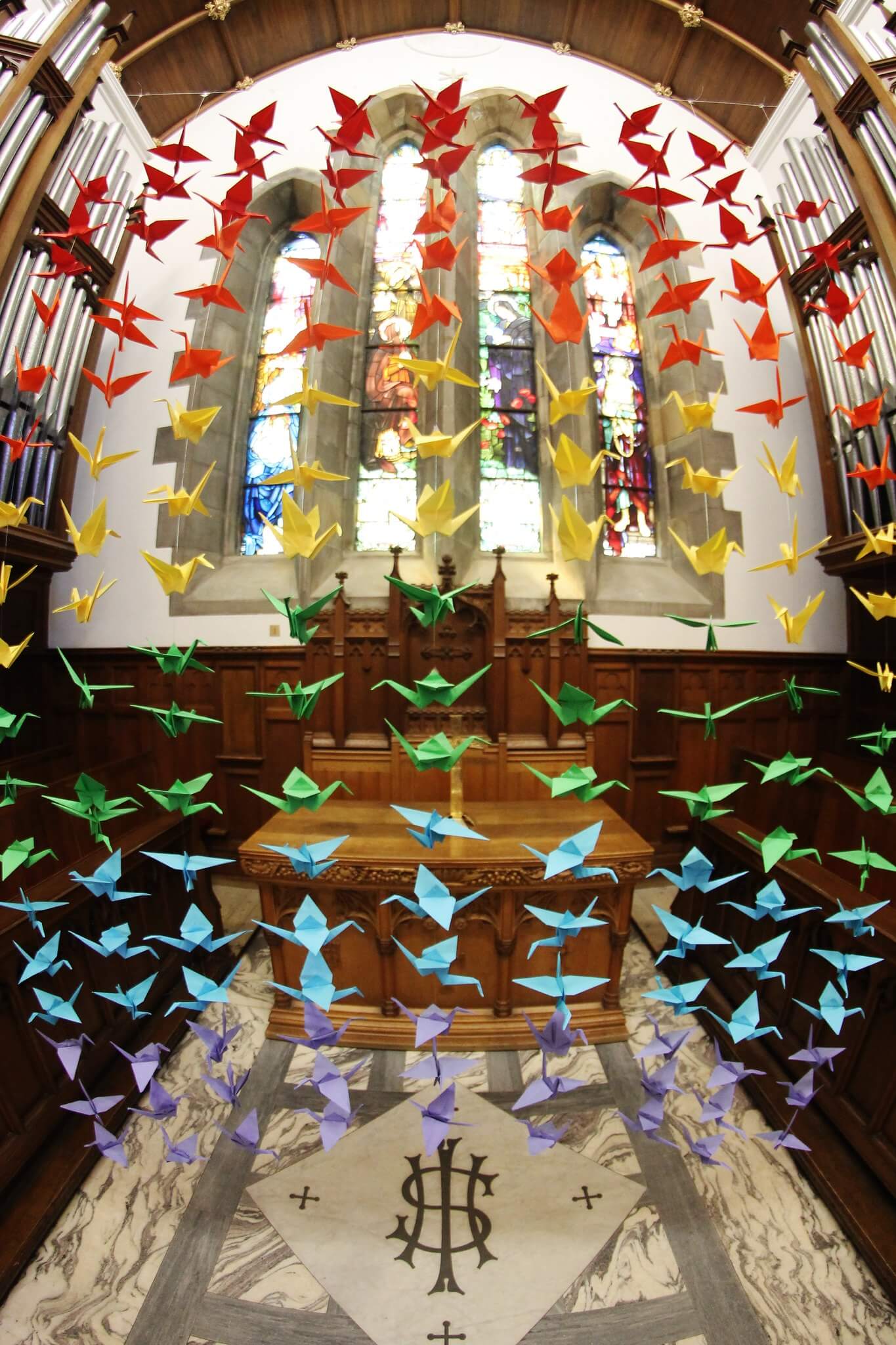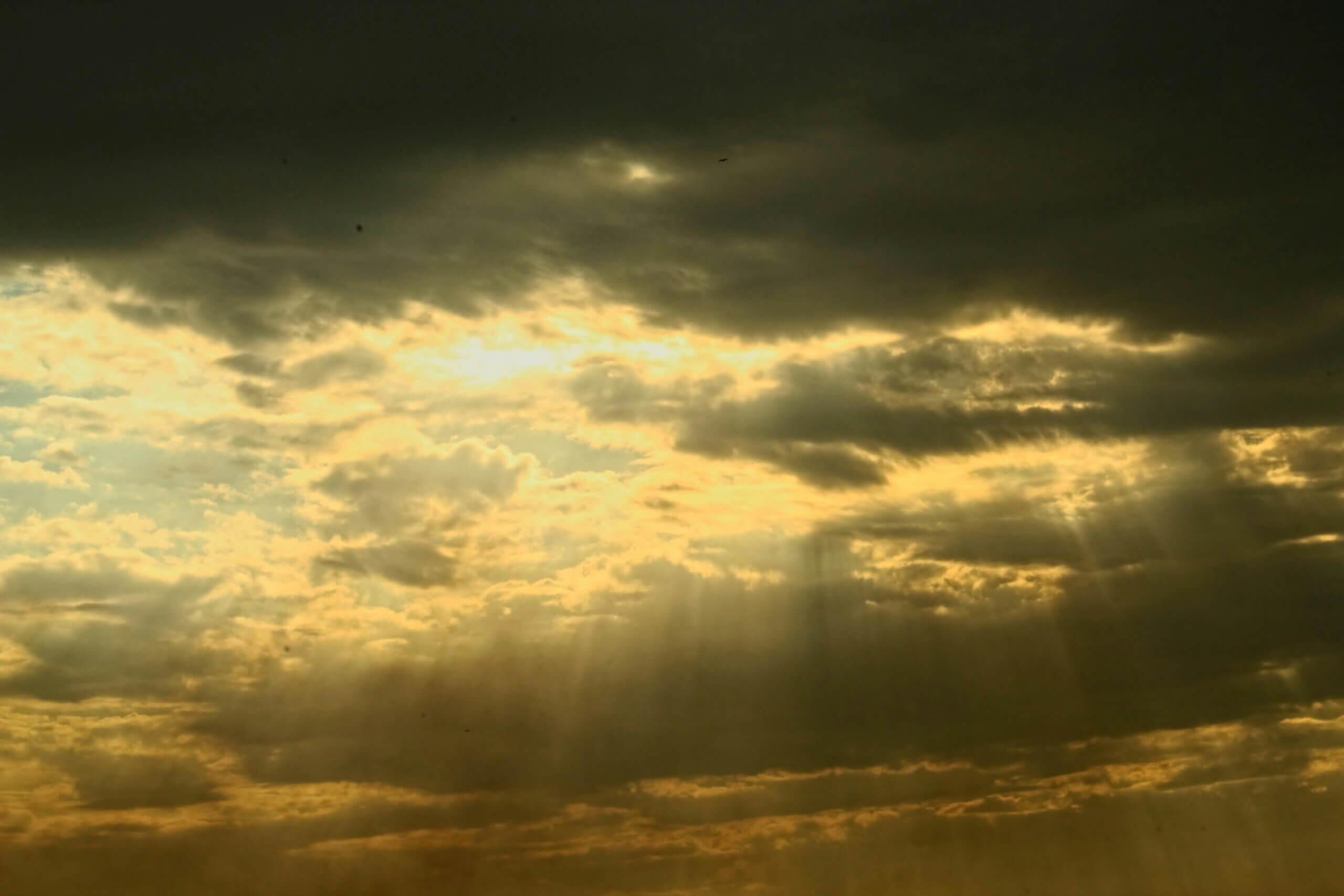To see music and readings that surrounded this homily:
HT bulletin Sun May 8, 2016 Easter 7 C
God knows – Canada has more than enough jails.
In 2013, the Correctional Commissioner for Canada reported to Parliament that the number of prisoners in federal and provincial jails was at an all-time high, even though crime rates have been steadily dropping for more than two decades.
He noted that indigenous people make up 25% of the prison population, even though they form only 4% of the overall population of Canada.
He noted that there had been a 75% increase in the number of visible minority prisoners in the past decade.
The International Centre for Prison Studies reported that, in 2015, Canada had 106 prisoners per 100,000 population.
That’s a big number, but pales in comparison with the United States – where they have an astonishing 698 inmates per 100,000 population.
Here in Toronto, the relatively new Toronto South Detention Centre is a huge facility – with a capacity of almost 2,000 inmates although it is still only partly filled. Some of the inmates are men serving sentences of less than two years, but many are in remand – that is, they in jail awaiting trial or some other proceeding. They have not been convicted, but they are in jail – sometimes for days, sometimes for weeks, sometimes longer.
The John Howard Society estimates that, once Toronto South is fully operational, as many as 200 men per week will be released – some after serving a short sentence but most because they have been discharged. Up to half of those men are destined to be homeless – and will move into the revolving door of shelters, streets and back to jail.
More than a few of those men dumped onto the streets by lack of proper discharge planning will end up as names among the honoured dead on the Toronto homeless memorial just outside our church building.
So, yes, it’s entirely understandable – as we read of Paul and Silas being freed from prison after an earthquake shook the very foundations of the building – that we might wish the same thing would happen in Canadian prisons.
Let the walls come tumbling down, let justice roll like a mighty river, let the all-powerful God who commands earthquakes flex some holy muscle.
Sadly, there are some, perhaps even a great many, Christians, who engage in that kind of magical thinking.
They picture God as some kind of genie in the sky who is anxious to fulfill our wishes, if only we ask in the correct way. Then the vengeful God will tear down the terrible prisons created by people.
Reading the story of Paul and Silas as a magical earthquake that freed two men who were unjustly jailed misses the deeper story.
Consider, first of all, the woman identified only as a slave girl. She was a valuable economic commodity to her owners, we are told, as she brought in a great deal of money. Paul freed the woman, which spurred the owners to seek the arrest of Paul and Silas. The woman was a prisoner in an unjust economic system that forced her into slavery. She wasn’t in jail, but she was very much a prisoner. And she was freed.
And then consider the crowd of people. The owners of the slave were angry that they had lost an important source of income, but they cleverly disguised their true motives by saying that Paul and Silas were guilty of disturbing the peace. They whipped up the anger of the mob by declaring that the two were outsiders, religious extremists and that they were advocating unnatural practices. Preach hatred for the stranger, it’s a tried and tested way to steer scrutiny away from those deserve it.
We see this happening today with US presidential candidate Donald Trump, who uses the sharp tongue of a demagogue to demonize Mexicans, and Muslims, and women, and many others. You would think that the people in our story from Acts would side with the poor slave. They have more in common with her than with the slave-owners. But no, they are easily manipulated into supporting the owners and endorsing an economic system that exploited them, as well.
The people in an unjust economic system aren’t in jail, but they are very much prisoners. Not just prisoners, but actively complicit in an unjust system that led to the wrongful jailing of Paul and Silas. They have helped to build the very prison that they inhabit.
Consider, finally, the remarkable story of the jailer. He was no prisoner – he was in charge of the prison. But when he awoke to see the prison foundations shaken, the doors flung open and everyone’s chains unfastened, the jailer realized that he was trapped – every bit a prisoner just like those in his charge. He was a prisoner in a social system and the chains that bound him to his prisoners were every bit as strong as the chains that bound the prisoners to the walls of their cells. The jailer was as much a prisoner as the people in manacles. Yet, when he realized his situation, he became free.
One key lesson from the story of Paul and Silas is that prisons with bars and walls are not the only prisons that have been created by humans.
We read in John chapter 8 verse 32 that the ‘truth will set you free’. To break out of the prisons created by social, and economic, and racial injustice, we need more than an earthquake. We need truth, we need love, we need a fierce commitment to justice, we need smart and sensible plans and we need a determination to – in the words of our first hymn – keep our minds stayed on freedom.
Dr Martin Luther King Jr and others understood this when they took the tune and some of the words of an old song called Gospel Plow and made it an anthem of the American civil rights movement in the 1950s and 1960s. We’ll raise our voices for ‘Eyes on the Prize’ as the sending hymn today. Keep your eyes on the prize, hold on, hold on.
Harvey Cox, the brilliant Harvard theologian, tells the story of being arrested in September 1963 along with 40 other people during a peaceful civil rights march in a small southern US city. Thirty of them were young black kids and a handful of parents. The jailer separated the blacks from the whites. Dr Cox reports:
“On the Saturday after we were incarcerated, the warden, a mild- mannered middle-aged white man, paused in front of our cell.
‘Well,’ he smiled, scratching his head. ‘Them colored kids been asking for a Bible, so’s they kin have Sunday school and church tomorrow.’ Still smiling, he shook his head. ‘So I gave ‘em one,’ he said. ‘Can’t do no harm, I guess.’
‘No harm?’ I thought. What the warden clearly did not know was that the reason these youngsters were in his jail was that they had been listening to Dr King and some of his co- workers teach and preach from that harmless Bible. They had learned that they were children of the same God who created white people and that they had an equal right to dignity and equality. The warden did not realize that, from Exodus to the Gospels to Revelation, the Bible talks about freedom and has stoked more than one revolutionary movement in history.
Sure enough, on Sunday morning the black adolescents ‘had church’… I realized that for those kids the Bible was more than a collection of beguiling stories from long ago… For them the Bible was a summons to be all they were meant to be. It was a living link to the long history of liberation movements, of which theirs was only the most recent…”
From: Harvey Cox, How to Read the Bible, New York: HarperCollins, 2015, p8.
A final thought as I am facing squarely towards the glorious Matthew 25 window here at Holy Trinity, which reminds us that Jesus taught that the nations will be judged by how they deal with the people who are hungry and thirsty, immigrants and others considered strangers, the poor and naked, the sick and – of course – the prisoners.
Yes, God is counting on you and also counting on me to work in the here and now to bring justice to those physically confined within the four walls of a prison. Not just preaching, but real justice in the real world in real time. Some of this work is within the prison walls of the Toronto South Detention Centre.
We also need to tackle the many prisons that enslave many people in social and economic injustice, racial discrimination, misogyny, homophobia, transphobia and the dizzying numbers of hatred that create prisons throughout our city and our country.
Each week, here at Holy Trinity, we pray that we may do God’s will with strength, wisdom and compassion, for the good of God’s reign of justice and peace. Let us continue to burn those words into our hearts, and live them every day in our lives.
In Jesus’s name.
Amen.






